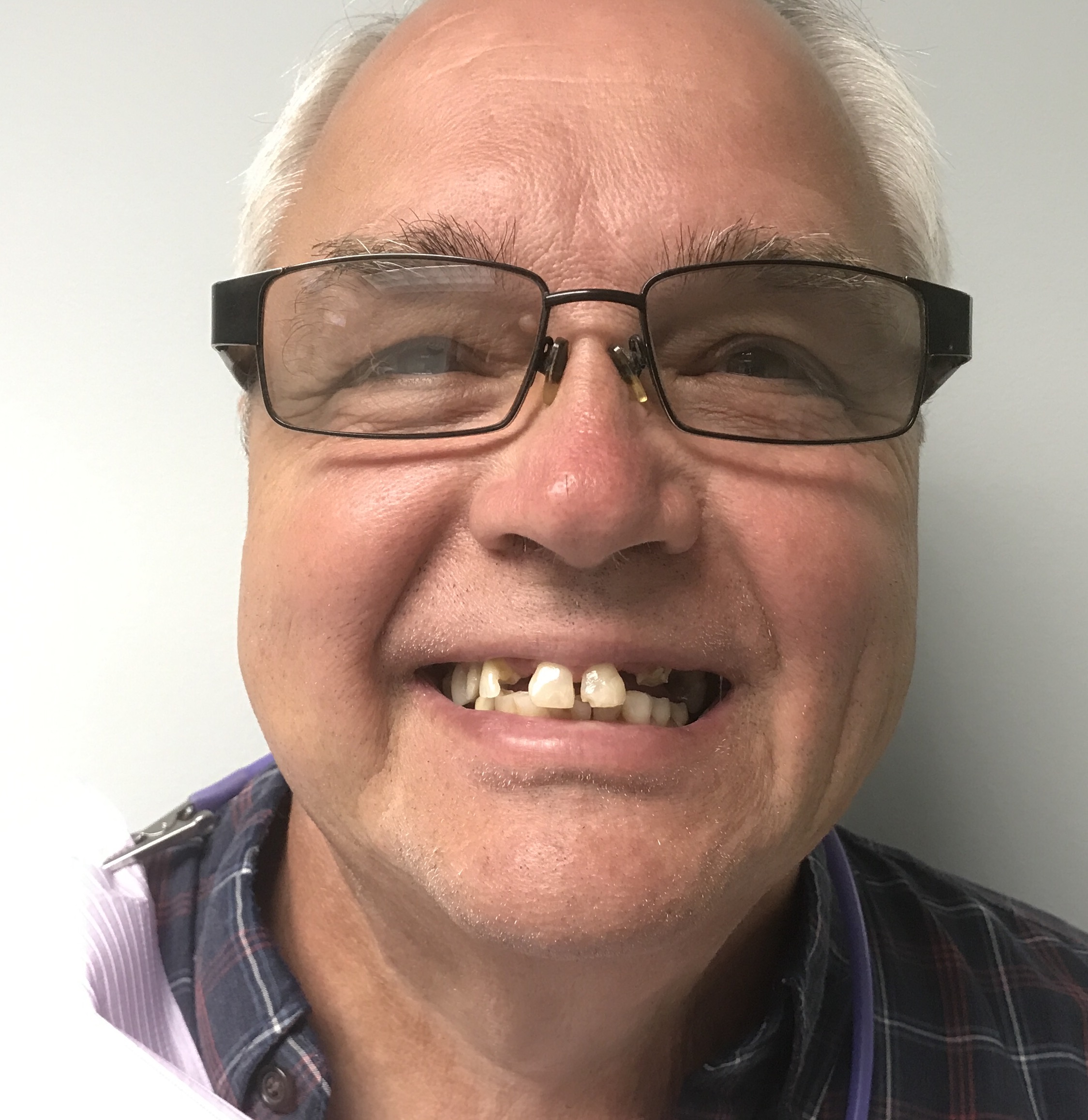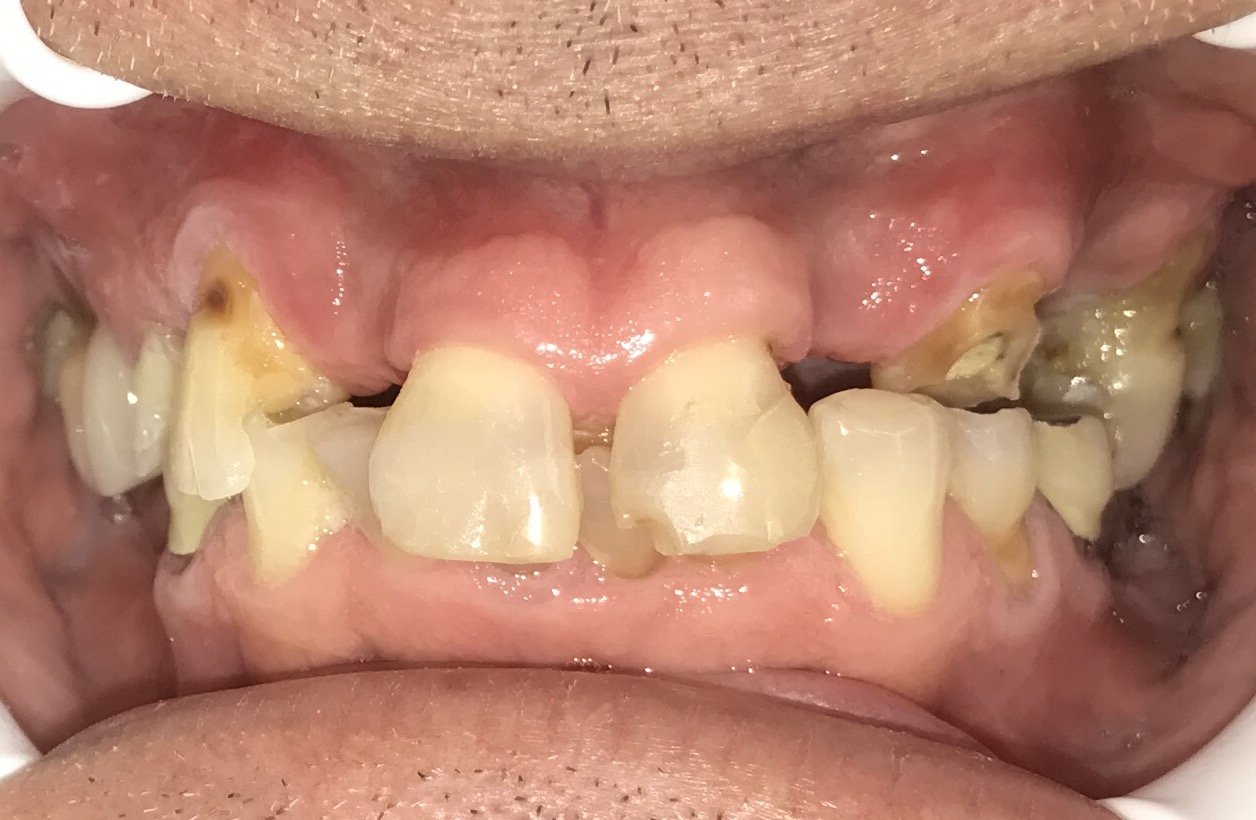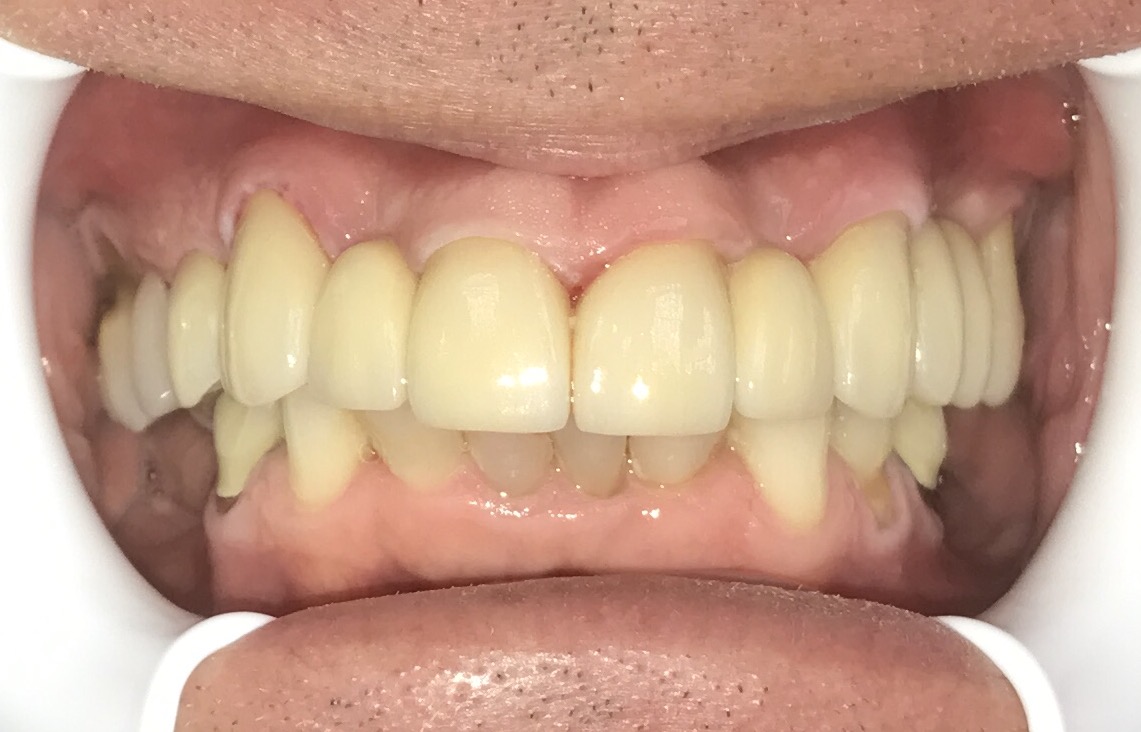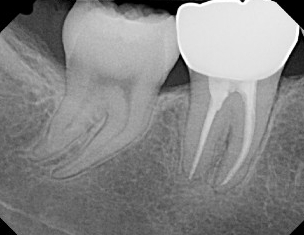We wanted to write about a very special case that we just finished, in order to achieve two things: show what a life changing event restoring your smile can be, and to show gratitude for being able to practice this profession. We will talk about The Bracy Case. (Yes, we have permission to show photos!)
Mr. Bracy is the father of one of our employees. He is the father of six kids, has worked his whole life in hard labor, has been a good husband and is a role model to his family. His teeth showed this. A hard life giving everyone around you all of your time can result in self neglect. He'd been walking around for a couple decades with a flimsy partial and a compromised smile, to say the least. He's the type of guy that has been giving everything to everybody he loves for so long that he forgot to take care of himself.
I immediately empathized with the guy because my father, Eddie Lopez, is the same way. He sacrificed decades trying to raise three boys with my mother, working two full time jobs, putting us through school and trying to give us the opportunities he never had. His teeth showed this. My older brother, Dr. Juan Lopez, who is also a dentist, fully restored his mouth and gave him his smile and function a while back, and my father is the better for it.
There are a lot of people in life that go without much fanfare, don't ask for anything, not even any recognition. They quietly build this world into a better one and don't expect anything in return. While it's not in their nature to ask, if anybody deserves a little leg up, it's them. With the guidance of Dr. Nolan, we were happy to help Mr. Bracy. We will fix the bottom ones next. This has been one of the most emotionally rewarding cases we've had.
Godspeed to all of you who make this world better.
Dr. Lopez and Dr. Gely








